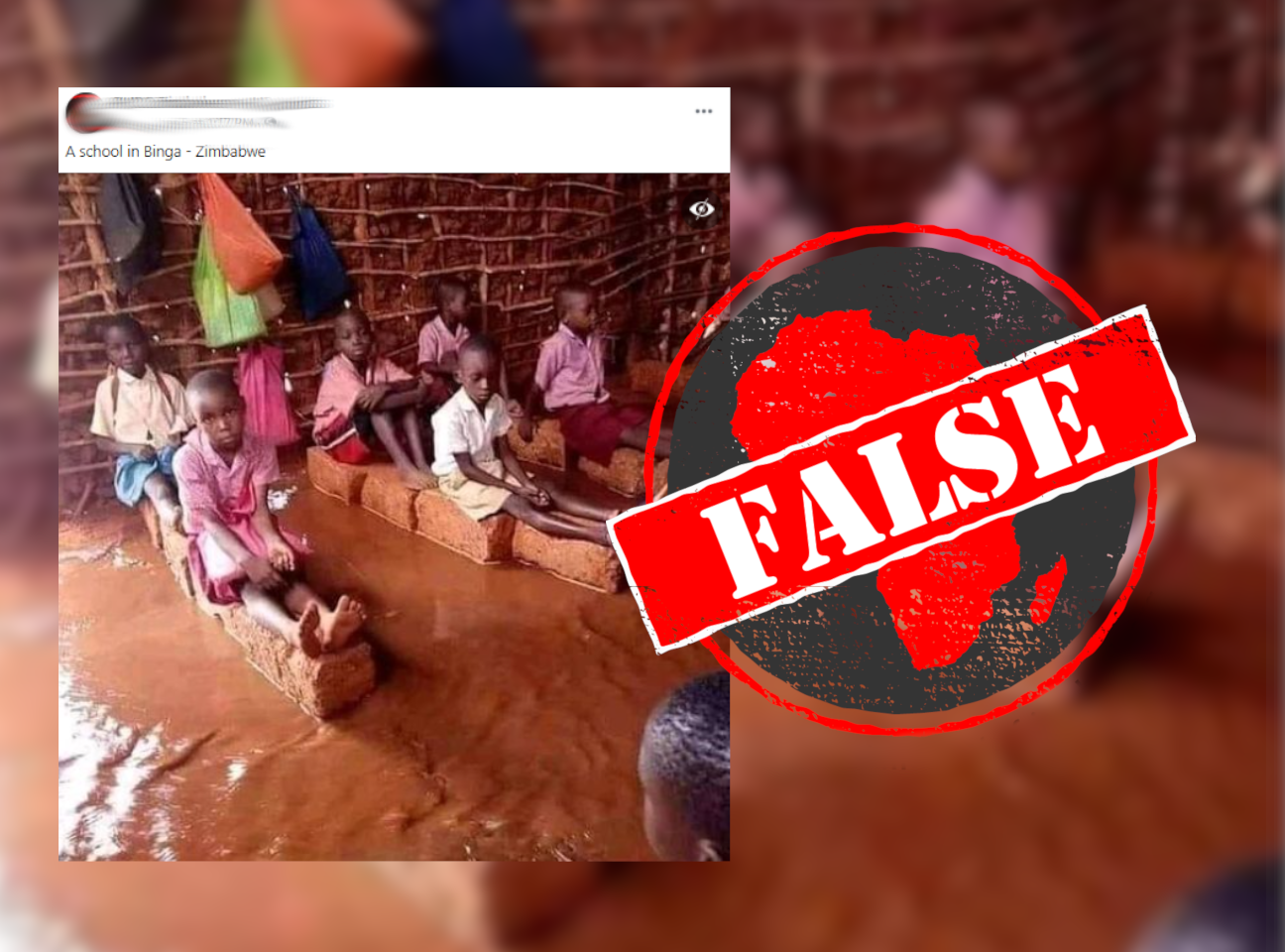A photo of children sitting on large bricks while dirty water flows through what seems to be their mud-walled classroom has been circulating on Facebook in September 2021 with the claim that it was snapped in Zimbabwe.
“A school in Binga – Zimbabwe,” the caption reads. The Binga region is in northwestern Zimbabwe, on the banks of Lake Kariba. The claim has sparked outrage among social media users in Zimbabwe.
But does the photo really show a classroom in Zimbabwe? We checked.

Frequently misused photo
A Tineye reverse image search reveals that the photo was first posted online in May 2019, in articles on the Kenyan news sites Nation and Tuko.
The headline on Tuko reads: “Netizens angered by viral photo of pupils sitting on bricks in flooded classroom.”
The articles reveal that the classroom is at Mangororo Primary School in the Ganze sub-county of Kenya’s Kilifi county. The photo was taken in Kenya, not Zimbabwe.
It’s been the subject of other false claims – that the classroom is in Nigeria’s Bayelsa or Kogi states – that Africa Check has debunked.
Republish our content for free
For publishers: what to do if your post is rated false
A fact-checker has rated your Facebook or Instagram post as “false”, “altered”, “partly false” or “missing context”. This could have serious consequences. What do you do?
Click on our guide for the steps you should follow.
Publishers guideAfrica Check teams up with Facebook
Africa Check is a partner in Meta's third-party fact-checking programme to help stop the spread of false information on social media.
The content we rate as “false” will be downgraded on Facebook and Instagram. This means fewer people will see it.
You can also help identify false information on Facebook. This guide explains how.


Add new comment